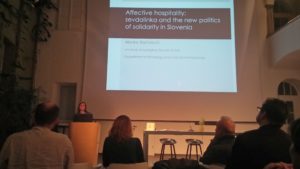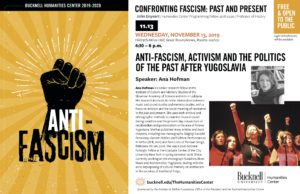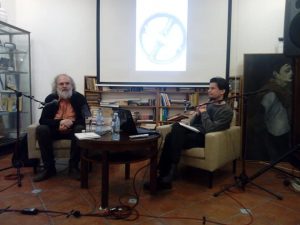AffecTalks
Join us for the 1st lecture in the AffecTalks series
Ian MacMillen
Playing it dangerously: belonging and exclusion and the tambura sentiment
November 16, 2021, 11:00-12:30 CET
Zoom: https://cutt.ly/qTabLAF
Ian MacMillen will present on his recent monograph, Playing It Dangerously (Wesleyan University Press, 2019). The book offers a new way to understand music and race, demonstrating how structures of belonging as well as exclusion arise as musicians’ feelings conflict with their discourses of diversity and inclusion. Based on fieldwork in Croatia, Serbia, Austria, and the U.S., it examines music’s affective mobilization beyond conscious thought, arguing for the centrality of material processes to the racialization of sentiment in tambura music. This genre-crossing practice serves as a site of both contestation and reconciliation for Croats, Roma, and Serbs since Croatia used it as a national symbol during the 1990s wars. The book demonstrates the dialectical dynamic between affective and discursive responses to differences in playing style, and how the denial of feeling ultimately helps to privilege ideas of tambura players as heroic male Croats, even as the music engenders diverse ethnic, racial, and gendered becomings.
Ian MacMillen is Lecturer in Music at Yale University and, for the Fall 2021 semester, a Fulbright Scholar in Bulgaria with a lectureship at New Bulgarian University. He previously directed the Center for Russian, East European & Central Asian Studies at Oberlin College & Conservatory, where he taught courses in Ethnomusicology and East European Studies. His research focuses on popular and traditional musics of Southeast Europe, with concentrated fieldwork projects in Eastern Croatia, Vojvodina (Serbia), and Sofia, Bulgaria. In addition to a monograph on tambura Music in Croatia (Wesleyan University Press, 2019), his research appears or is forthcoming in publications such as Ethnomusicology Forum, Ethnomusicology, Hrvatski Tamburaški Brevijar, and the Oxford Handbook of Slavic Folklore. His current book project on music, memory, and forgetting has been solicited by the University of Chicago Press.
AffecTalks lecture series is organized within the project “Music and politics in the post-Yugoslav space: toward a new paradigm of politics of music in the 21st century”, financed by the Slovenian Research Agency (J6-9365).




